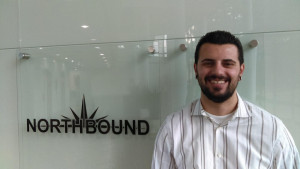Contributor: Matthew Abbasfard, Social Media Marketing, Content Creation for Northbound Treatment Services
 Addiction is a disease that robs people of their self-esteem, relationships, and sense of purpose. The behaviors that addicts engage in are demoralizing and humiliating, and chip away at their humanity.
Addiction is a disease that robs people of their self-esteem, relationships, and sense of purpose. The behaviors that addicts engage in are demoralizing and humiliating, and chip away at their humanity.
Family and friends do everything they can to help and stay involved, but the empty promises and loss of hope leads them to pull away, with no other choice but to hope and pray that addict can find their own path to sobriety. The addict is left isolated and alone, relying on a drink and drug to cure their isolation and sense of loss.
Rebuilding our confidence and self-esteem takes time in recovery, but they eventually come back through sober fellowship and continued support. Unfortunately, many recovering addicts graduate treatment, but fail to make a connection with long-term support systems, like their local 12 Step groups or Alumni Programs.
Bridging the Gap, a program in Alcoholics Anonymous dedicated to helping recently released inmates successfully transition in the rooms of AA, revealed that inmates have much higher chances of staying sober when they immediately attend meetings after release.
In order to be effective, treatment centers should model their Alumni programs with statistics like these in mind, offering clients an aftercare option that is sustainable, exciting, and empowering.
Treatment
Treatment should involve a full continuum of care, which gradually eases clients through the program’s stages. Each stage should be designed to slowly transition clients back into the fold, while providing them with coping mechanisms and strategies to succeed in their increasing responsibilities.
Longer inpatient stays are preferable, with clients remaining inpatient around 6 months, instead of the boiler plate 30 days. After advancing through the various stages of inpatient treatment, clients can smoothly move into an Alumni program for long-term support.
 Alumni should be given the opportunity to meet more than once a week, participating in morning meditations, speaker meetings, open discussion, and book studies. Meetings should be 12-step based, but not of any specific Fellowship (AA, NA, CMA, etc.).
Alumni should be given the opportunity to meet more than once a week, participating in morning meditations, speaker meetings, open discussion, and book studies. Meetings should be 12-step based, but not of any specific Fellowship (AA, NA, CMA, etc.).
This makes meetings inclusive and open to all, focusing on the similarities of their addictions instead of the differences. Inclusiveness is appealing, allowing for larger meeting attendance and more recovery perspectives.
This will also lead to continued, long term Alumni attendance, and include Alumni with multiple years of sobriety who can be uniquely helpful to recent graduates.
Morning meditation should take place in a serene, welcoming environment, where each Alumnus has the opportunity to share. This allows Alumni to voice their concerns, share their experience, and lean on each other for the strength to succeed and thrive.
Evening meetings can also include dinner, with an invitation extended to clients at the treatment program’s outpatient program. This introduces all soon-to-be transitioning outpatient clients to a viable aftercare group, and puts them in contact with the successfully transitioned Alumni.
Alumni Fellowship
The Alumni fellowship should extend beyond the doors of 12-Step meetings, and into the local community. Whether participating in extreme sports like surfing and snowboarding, or going out in the evenings to enjoy movies, bowling, and game nights, Alumni should be encouraged to have fun and get the most out of life.
 Recreation and physical health play an important part in sobriety, and Alumni can participate in co-ed soccer and softball teams. Alumni will have a blast participating in healthy, sober outlets, and become closer through their shared experiences.
Recreation and physical health play an important part in sobriety, and Alumni can participate in co-ed soccer and softball teams. Alumni will have a blast participating in healthy, sober outlets, and become closer through their shared experiences.
Although the majority of the focus should be on Alumni fellowship, a large part of a successful Alumni Program includes service and volunteer work. Service is a pillar of sobriety, and service to our community allows us re-enter the world and feel like a part of life.
Sober individuals genuinely enjoy giving back to the community, and volunteering in a wide range of programs. Sobriety and service are interconnected, and helping others helps us.
Through the combination of recovery, service, and fellowship, Alumni programs offers clients a real chance at long-term sobriety. Although each programs will have individual differences, successful programs should meet multiple times each week for 12-step meetings, participate in volunteer projects, and become active and involved in the community as a whole.
Surfing, sports and exercise are the final touch, and round out the Alumni program by offering exciting, sober outlets for having fun and enjoying live. Whether working with others or enjoying the gifts of being sober, strong Alumni programs are the cornerstone of sobriety.
Community Discussion – Share your thoughts here!
What has been your experience with alumni programs within your recovery from addiction? How have they helped you and what has been your experience with helping others?
 About Northbound Treatment Services: The Alumni mission statement is “Alumni driven to meet alumni needs,” which exemplifies the program’s focus on autonomy and empowerment. Although some elements are facilitated by Northbound staff, the majority of the Alumni program is self-run by the Alumni themselves.
About Northbound Treatment Services: The Alumni mission statement is “Alumni driven to meet alumni needs,” which exemplifies the program’s focus on autonomy and empowerment. Although some elements are facilitated by Northbound staff, the majority of the Alumni program is self-run by the Alumni themselves.
This gives them the opportunity to practice valuable life skills, like time management and coordination, and to take their recovery in the direction they want to go. The three pillars of the Alumni Program are Connection, Community, and Adventure, which come to life through service, volunteer work, camaraderie, and good old-fashioned fun. Jaana Woodbury is our Alumni Relations Manager, and since her recent involvement Northbound’s Alumni Program has more than doubled to over 200 active participants.
The opinions and views of our guest contributors are shared to provide a broad perspective of addictions. These are not necessarily the views of Addiction Hope, but an effort to offer discussion of various issues by different concerned individuals.
We at Addiction Hope understand that addictions result from a combination of environmental and genetic factors. If you or a loved one are suffering from an addiction, please know that there is hope for you, and seek immediate professional help.
Last Updated & Reviewed By: Jacquelyn Ekern, MS, LPC on November 11, 2015
Published on AddictionHope.com
